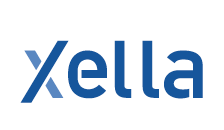Calcium Silicate Special & Drymix-Special
Saving resources while meeting the highest quality standards
Ytong Silent+, a calcium silicate block with the use of recycled AAC
Loading...Xella’s Ytong Silent+ sets new standards in the resource- saving production of high-quality masonry materials. Silent+, which was presented for the first time at this year’s BAU construction trade fair in Munich, contains more than ten percent autoclaved aerated concrete (AAC) flour from residues. This makes sense both from an ecological and an economic point of view, as it permits saving high costs for the extraction and processing of natural resources. This protects the environment and supports a sustainable, long-term approach to the extraction of raw materials and the protection of resources.
In the production of the blocks, AAC debris replaces part of the sand, which, besides water and lime, is one of the three components of calcium silicate bricks. With a compressive strength of 10 N/mm² and a bulk density of 1.6, Silent+ scores with its stability and mass, ensures effective sound insulation (as its name suggests) and is non-combustible.
In order to guarantee consistently high quality and corresponding properties, it is important to use only the best raw materials.
One such source of high-quality raw materials is AAC debris that occurs during production and has been either refined into granulate or reused in the production process at Xella for decades. While this is an important contribution, it is certainly not enough if you take the vision of closed product cycles seriously.
This is why Xella Technologie- und Forschungsgesellschaft mbH has developed a process for the reuse of AAC residues from demolition activities and mixed construction waste in cooperation with Otto Dörner Entsorgung GmbH. Instead of simply storing the material as before, Otto Dörner GmbH sorts and refines it in a multi-stage process. This involves the use of air separators, magnetic separators, sink/float as well as final manual separation processes. The AAC residues are then returned to the Ytong plant in Wedel sorted by type. Here they are processed into AAC flour.
The flour is currently used to manufacture P4-0.55 grade blocks, which do not differ from conventionally produced Ytong blocks in terms of load-bearing capacity and thermal insulation. In the long term, it is also planned to use the recycled material for the production of assembly components made of autoclaved aerated concrete as well as panels for non-load bearing walls.

Xella Deutschland GmbH
Düsseldorfer Landstraße 395
47259 Duisburg, Germany
info@ytong-silka.de
www.ytong-silka.de